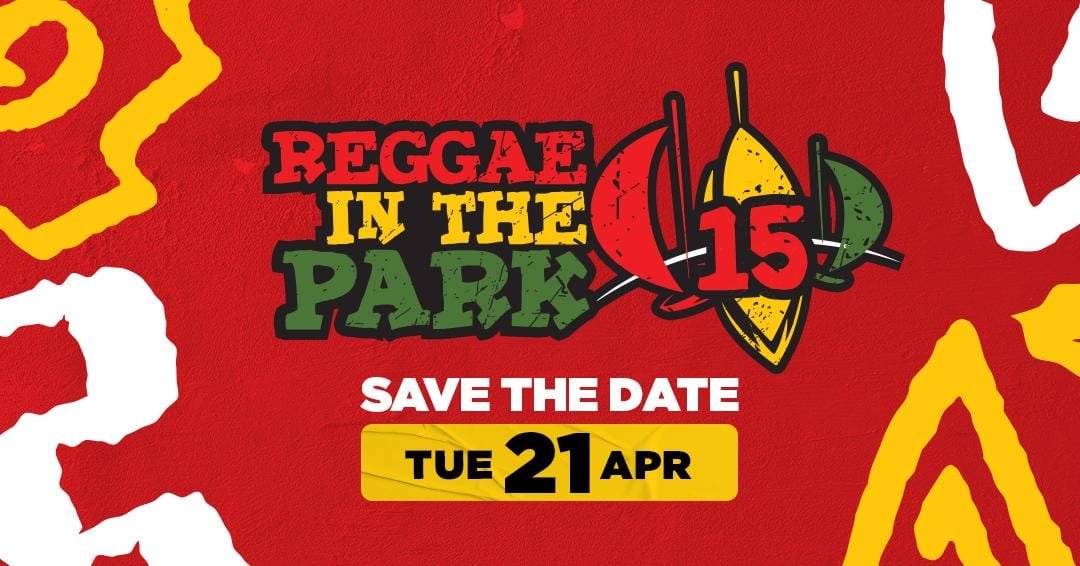
by Dr. Lenworth W. Johnson
Let’s confront the question posed by the title of this article right away. Are reparations for slavery a realistic possibility or just a fantasy? I firmly believe that reparations are a practical, fair, and achievable way to compensate the descendants of Africans in the Caribbean for the atrocities committed by European nations during the transatlantic slave trade and slavery. Many people in Antigua and Barbuda, and in the black world at large, perhaps a majority, believe that reparations are unlikely, a mere dream, and will never happen. Respectfully, and with no intention to offend anyone, those individuals should ask themselves: why should other races and peoples receive reparations for injustices done to them, and not black people? Is the black race considered unequal, such that we are undeserving of an apology and compensation for the injustices we have faced?
The Antigua and Barbuda Reparations Support Commission (ABRSC) notes that the concept of reparations was never foreign to the thinking of the British, US, and European nations. ABRSC presents the following facts in support of their contention:
- Germany has paid Israel (the Jews) an estimated 60 billion dollars as reparations for the Holocaust in Nazi Germany during World War II.
- Japanese Americans received an apology and $20,000.00 per person from the US for unjust racial discrimination during World War II.
- The US has made reparations payments of $1.3 billion to Native American Indians and has provided large areas of reserve.
- The Allies of World War II (the victors) claimed approximately $33 billion from Germany after the war.
- Poland demanded $284 million and land from Germany for using Poles as slave labor.
- The Eskimos received $1.5 billion from the Canadian government and vast areas of land.
- The Aborigines received large areas of bauxite land from the Australian government and a significant amount of money.
- The Maoris in New Zealand received $160 million and a large amount of territory.
So again, why should Afro-Caribbeans not receive appropriate compensation for wrongs committed against them? ABRSC defines reparations as the act of redressing a wrong. It states that the reparations process involves recognizing past injustices, addressing current inequalities, and implementing measures to restore dignity, rights, and opportunities to affected groups. This concept is grounded in the principles of justice, fairness, and reconciliation, which aim to repair social, economic, and psychological damages caused to our communities.

The argument is made that reparations for the horrific and murderous treatment meted out during slavery are impossible to quantify, as the sum would be so enormous that no nation could afford it—not even the United States or the United Kingdom. Furthermore, the amounts mentioned in the reparation examples above are paltry compared to what would be required to compensate for the wrongs committed during slavery in the Caribbean. Skeptics should review the Caricom Reparations Commission’s (CRC) proposals. These proposals are mainly developmental and can be funded by the offending nations over time using various methods, including in-kind contributions rather than cash. Briefly, Caricom governments have identified ten (10) areas that represent the path toward reconciliation, truth, and justice for the victims and descendants of chattel slavery (where people were treated as property and not human beings), and for indigenous genocide (the intentional killing of the native Tainos/Arawaks and Kalinagos/Caribs). These are:
- Full and formal apology
- Indigenous Peoples Development Programme
- Repatriation to Africa Programme
- Cultural Rehabilitation Projects
- Repairing the Public Health Crisis (particularly in hypertension and Type 2 diabetes).
- Education and Development
- Enhancement of Historical Knowledge
- Psychological Rehabilitation
- The Right to Technology Development
- Debt cancellation & Monetary Compensation
Therefore, reparations as proposed by the CRC are not about paying cash to today’s descendants of slaves. The ten areas mentioned above require detailed analysis, which will be addressed in future articles. However, before that, I need to introduce you to the primary arguments made by European countries that oppose paying reparations for slavery. Their chief defense is that slavery was legal at the time, similar to the infamous statement from the UN Conference against Racism held in Durban, South Africa, in 2001, that “slavery and the slave trade are a crime against humanity and should always have been so.”
As indicated above, the European enslavers practiced chattel slavery. Chattel slavery is a system where one person is treated as the absolute property, or chattel, of another and can be bought, sold, or traded like livestock or furniture. Enslaved individuals are considered to have no legal rights, and their children are born into the same state of enslavement as property of the master. It can be conclusively shown that chattel slavery has never been legal under international law, and internal laws in colonial territories claiming to legalize slavery were ineffective.
It can be clearly demonstrated that slavery in Africa, until the colonial powers arrived, mainly resulted from captivity during war, punishment for crimes, and debt bondage. It can be convincingly shown that slaves in Africa resembled serfs in medieval Europe, who were obliged to live on their lord’s land and give homage, labour, and a share of the produce, or even like slaves in Rome, who could own real property (land) and even their own slaves. Additionally, slaves in these times had legal rights. The key point is that slaves in Europe and Africa during medieval times were considered human. They were not dehumanized and regarded as chattel.

The second argument from enslaver European territories is that slavery happened so long ago that everyone involved, including victims and perpetrators, has long since died. They also contend that descendants of enslavers should not be held responsible for their ancestors’ crimes. In English law, this idea is known as laches, a legal doctrine that can bar a claim if the plaintiff delays unreasonably in bringing it and if that delay harms the defendant. Essentially, it is a defense claiming that the claimant waited too long to act, and this delay has made the situation worse for the defendant. The European enslavers argue that the call for reparations has come too late. In fact, there has always been resistance from enslaved people and calls for reparations. Every effort, before or after Emancipation in 1834/1838, whether through individual or group revolts, aimed at securing reparations.
The Maroon Wars of Jamaica (1728-1740), the King Court uprising in Antigua (1736), the Haitian Revolution (1791-1804), the Barbados Riot of 1876, the 1930s Labour Riots across the English-speaking Caribbean, the arguments and philosophies of Pan-Africanists such as W.E.B. Du Bois and Marcus Garvey, the Rastafarian strong support for repatriation to Africa, and the Caricom Reparations Commission’s demand for justice all reflect a growing call for reparations and return to Africa to improve people’s economic, developmental, and cultural conditions. The call for reparations occurred during and after slavery. In any case, under English law, a person’s descendants—such as an executor or administrator—can act on their behalf after death. Under English law, the descendants of a person or people can seek compensation for wrongs done to the deceased person(s).
Another argument advanced by colonialist sympathizers, including some from the Black community, is that African chiefs and kings collaborated during transatlantic slavery. There were many Jews who collaborated with the German Nazis during World War II, but that did not prevent reparations from being paid to the Jews. Throughout history, there have always been individuals who sided with oppressors for money and selfish gain. Some people cannot resist betraying others for profit. The fact that European enslavers beguiled and coerced others into supporting their evil scheme is not a reason to absolve them of paying reparations.
Caribbean historians and researchers are currently documenting the basis of the factual, moral, and legal claim against European enslavers. To this end, slavery and the slave trade were crimes against humanity. One of the more critical UN conferences on racism held in Durban, South Africa in 2001 provided a classic description of the effects of slavery and the slave trade:
We acknowledge that slavery and the slave trade, including the transatlantic slave
trade, were appalling tragedies in the history of humanity not only because of their abhorrent
barbarism but also in terms of their magnitude, organized nature and especially their negation of the essence of the victims, and further acknowledge that slavery and the slave trade are a crime against humanity and should always have been so…
The modern definition of a crime against humanity is set out in Article 7 of the 1998 Rome Statute of the International Criminal Court. “Crime against humanity” refers to a series of acts committed as part of a widespread or systematic attack directed against any civilian population, with knowledge of the attack. One of the crimes listed as a crime against humanity is enslavement. For the Rome Stature, “enslavement” means the exercise of any or all of the powers attaching to the right of ownership over a person and includes the exercise of such power in the course of trafficking in persons, in particular women and children. (This writer abhors the term “right of ownership over a person” suggesting as it does that one human being can own another; the term should be “claimed right of ownership…”). UN General Assembly resolution 2391 (XXIII) of November 26, 1968: Convention on the Non-Applicability of Statutory Limitations to War Crimes and Crimes Against Humanity confirms that there are no statutes of limitations on crimes against humanity.
Reparations for slavery might not happen in my lifetime or yours, but they will come. I am sure of that. There is a growing global movement for reparations. In September 2023, the Government of Ghana held an international reparations conference, themed ‘On building a united front to advance the cause of justice and reparations to Africans’. After the Ghana conference, the African Union announced its theme for 2025 as: “Justice for Africans and people of African descent through reparations.” On December 17, 2024, the United Nations General Assembly officially adopted a resolution to establish a second International Decade for People of African Descent, which will run from Jan. 1, 2025, to Dec. 31, 2034. This Second International Decade will focus on ‘People of African descent: Recognition, Justice, and Development’ and is an opportunity for everyone to take concrete steps to confront the legacies of slavery and colonialism, deliver reparatory justice, and secure full human rights and freedoms for people of African descent worldwide.
We will prevail. This is a reality. Justice for our ancestors!
Dr. Lenworth Johnson
22 October 2025
About Dr. Lenworth W. Johnson:
Dr. Lenworth Johnson is a chartered accountant and an attorney-at-law, as well as a former member of the Senate, the Upper House of Parliament in Antigua and Barbuda. In 2024, he graduated from the University of the West Indies with the degree of Doctor of Education. Dr. Johnson is a member of the Antigua and Barbuda Reparations Support Commission.
Advertise with the mоѕt vіѕіtеd nеwѕ ѕіtе іn Antigua!
We offer fully customizable and flexible digital marketing packages.
Contact us at [email protected]















It is pure fantasy. Reparations for slavery will never happen and deep down, we all know it.
People claiming reparations for things others did to someone that they don’t know their names centuries ago. Why we don’t call reparations to the family of some criminal when they take the life of a human being and send a family to the burden of poverty because of his actions?
Why we don’t claim reparations to government workers when they mismanaged the budget and cash flow of the government
REPARATIONS starts with your religious institutions, the church of rome and the chuch of england and their co-conspirators the African chiefs on the African Continent, that were responsible for the INQUISITIONS which established the Triangular Slave Trade from the 15th Century to the Present.
These QUASI REPARATIONS Movements don’t have the cohones to go after the churches/religious institutions which are still enslaving the People mentally.
Again, yet again, at least use the precedent set in the Courts which have found the Catholic Church guilty of crimes against HUEmanity and have paid BILLIONS of dollars to victims of abuse. As a matter of fact, it’s a fact that the figure is higher due at the local diocesan level due to SETTLEMENTS out of courts.
The author of this verbal diarrhea is an attorney at law. Tell him to respond and call what I mentioned.
These QUASI REPARATIONS MOVEMENTS draped in Chinese manufactured Kente cloth are still fearful of their handlers out of Europe.
Why aren’t they DEMANDING, that at least, the EDUCATION SYSTEM be upgraded to teach about the varying cultures of Africa?
Jumbee_Picknee aka Ras Smood
De’ole Dutty Peg🦶🏿Garrat_Bastard
Vere Edwards
I think that instead of looking on a lump sum monetary value, there should be investment in countries affected for a period of time (300 years??). Experts could come up with an appropriate amount that should be used to invest in infrastructure, education, and health care.
I do not think that any amount can ever be paid in compensation but ongoing annual and documented payments will remind countries and their citizens that they would not be enjoying their way of life and standard of living had it not been for slavery.
It has to be ongoing because there is no way that a country can pay X amount of dollars and then announce that their debt is repaid.
Comments are closed.